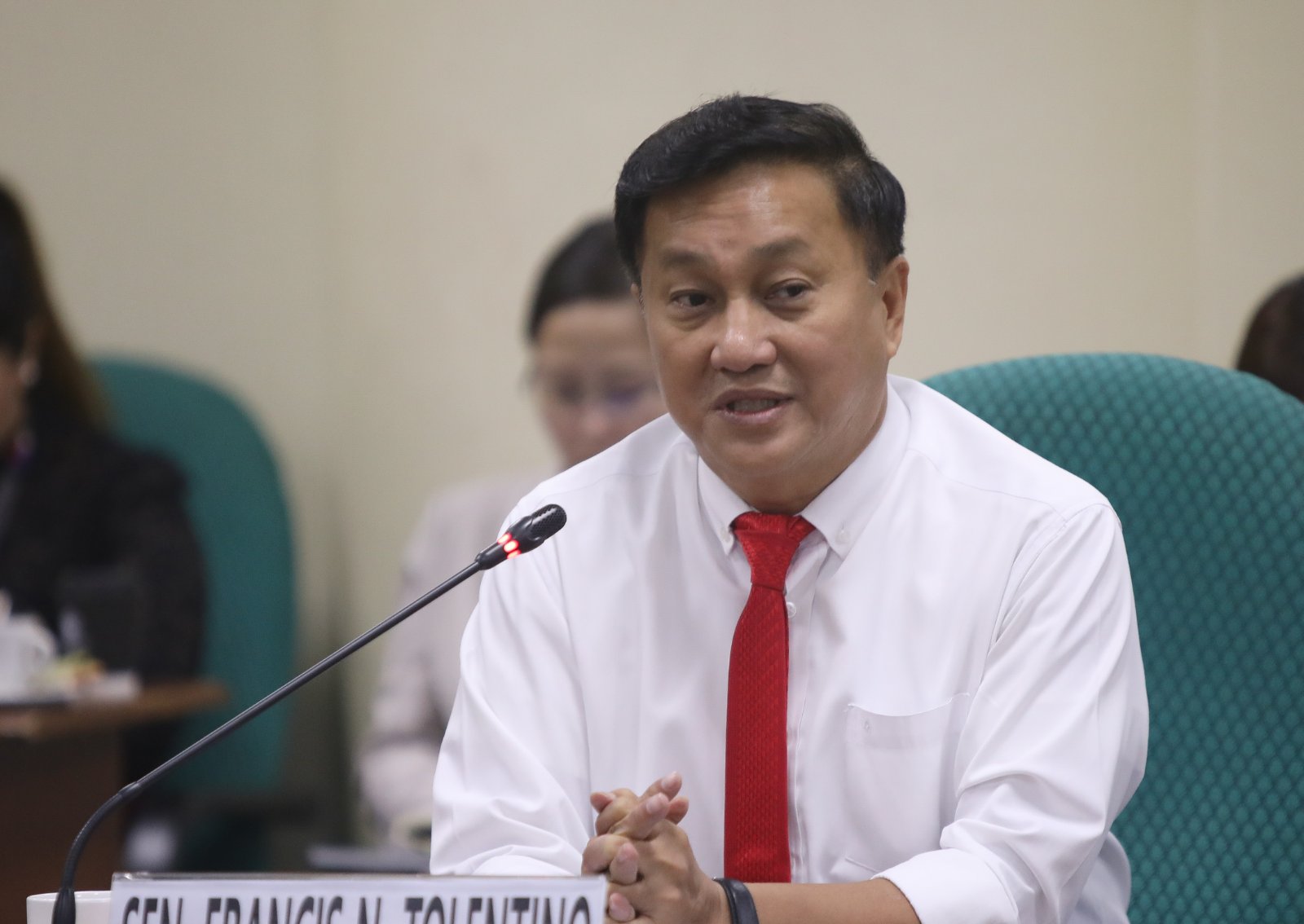
Sen. Francis “Tol” Tolentino —Senate PRIB
Is this still related to the Senate “taking the lead” on discussions about Charter change (Cha-cha)?
One senator has suggested that the chamber show the special significance of the task through a change of attire, by having its members in robes—like judges in court—whenever they convene and deliberate on proposed amendments to the Constitution.
“To differentiate our regular duty as lawmakers and to give the process of constitutional [revision] more dignity, I suggested that senators should wear robes once we convene as a Senate [constituent] assembly,” Sen. Francis Tolentino said in an interview on dwIZ.
Impeachment trial
“Amending the Constitution does not happen often. So let’s give the process the dignity it deserves,” he said, adding that the attire would add “solemnity to the amendatory process of changing the Constitution and highlight the process.”
“What we are doing now is separate and above from our ordinary legislative duties,” the administration senator explained.
The last time members of the Senate donned robes in session was when the body convened as an impeachment court for the trial of then Chief Justice Renato Corona in 2012.
According to Tolentino, he had already relayed the proposal to Senate President Juan Miguel Zubiri, who he said readily supported the idea.
And instead of spending public funds for the robes, he suggested that the Senate “just rent those being used [by students] during graduation.”
“We don’t have to look for the robes [used in the Corona trial]. Those may already be worn out,” he added.
However, Tolentino’s proposal immediately drew an objection from a colleague.
“I disagree with that. We only wore robes to show to the people that we are acting as judges during the impeachment trial,” Sen. Aquilino Pimentel III said. “There is no need for a special attire.”
Still without own rules
“We did that so the people would know that they should not lobby to us because we’re no longer lawmakers or [ordinary] politicians, but judges of those being impeached,” Pimentel said.
Also in the radio interview, Tolentino said his colleagues should immediately come up with their own rules of procedure for Cha-cha discussions, as earlier suggested by Sen. Francis Escudero.
Unlike the House of Representatives, the Senate has yet to draw up its own policy on the matter, Escudero then pointed out.
Tolentino said the chamber was practically taking up Cha-cha via the “Bernas formula”—or the process named after late Jesuit priest and legal luminary Joaquin Bernas, a member of the 1986 constitutional commission that drafted the Charter.
In an opinion column for the Inquirer in 2011, Bernas wrote of a process where both chambers of Congress “will stay where they are and formulate their [Cha-cha] proposal as they do statutes, but by three-fourths vote of each entire house. Whatever is approved is then sent to the other house for processing.”
Tolentino said the senators used the method when Zubiri, Senate President Pro Tempore Loren Legarda and Sen. Juan Edgardo Angara filed Resolution of Both Houses No. 6, which calls for the removal of restrictions on foreign ownership in public utilities, tertiary schools and advertising companies.
Voting ‘no’
The House has started hearings on a parallel measure, Resolution of Both Houses No. 7, which wants both chambers of Congress—the 24 senators and over 300 district and party list representatives—to vote on the amendments as one body.
Pimentel on Saturday said he and up to eight other senators had already decided to vote against RBH 6, and among those who would definitely block its passage was fellow oppositionist Sen. Risa Hontiveros.
READ: Senate deliberation on economic Cha-cha begins
Under the Charter, passing a constitutional amendment requires the vote of three-fourths of the members of the Senate and the House. In the Senate, this means at least 18 of the 24 members voting in favor.
‘There’s a chance’
Meanwhile, Sen. Cynthia Villar said “there’s a chance” that seven senators, including her and four other allies of President Marcos, would thumb down Cha-cha.
Villar, the matriarch of a family running one of the country’s biggest business empires, said company owners she had spoken with were not interested in Cha-cha and would see other problems like red tape and corruption being addressed.
“They claim they are only after the economic provisions,” Villar said, referring to Cha-cha proponents, whom she left unnamed. “But when they open up the Constitution, nobody can stop them from changing other provisions, including the political portions. That’s not good.”

